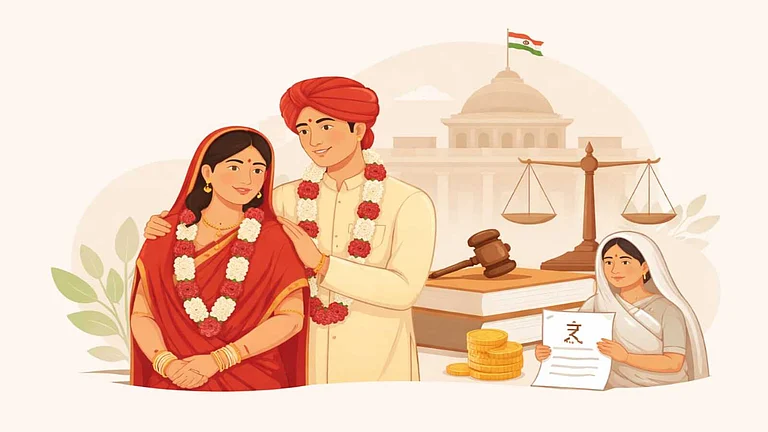
Summary of this article
The Rajasthan High Court has held that a son has no legal claim over his father’s self-acquired house, despite having lived there for years. It concluded that family permission to stay cannot be converted into a legal right, and ordered the son to vacate with costs imposed for prolonging the dispute.
In an important ruling that strengthens the rights of senior citizens in intra-family property disputes, the Rajasthan High Court has held that an adult child cannot claim any legal right to occupy a property that belongs exclusively to the parent. The Court dismissed a son’s second appeal in a dispute that had been running for several years and confirmed that permissive occupation within a family does not create ownership rights of any kind.
Factual Background
The conflict arose from a house in Jaipur. The father and his brother had purchased the plot in 1974 in a municipal auction. The sale deed was executed in their joint names. Over time, they divided the land by mutual understanding, and the father constructed his home on the western side. Years later, he allowed his son and his son's wife to stay in a part of this house after the son’s marriage. This act was done out of family goodwill. There were no transfer of rights and no intention to give the son any ownership in the property.
“The relationship later broke down. The father alleged abusive conduct and asked the son to vacate the portion he had been permitted to occupy. In 2018, he issued a legal notice revoking the permission. The son refused to leave and instead claimed that the property belonged to a Hindu Undivided Family. He argued that he was a coparcener and had a birthright in the property. This forced the father to file a civil suit seeking a mandatory injunction for eviction,” says Shankey Agrawal, Partner, BMR Legal.
Trial And Appellate Courts’ Order
The son argued that the house was bought with income from a bidi business and that the business itself formed an HUF. According to him, the property was joint family property, and he had an equal stake. He also filed a counterclaim to protect his alleged right to continue living and constructing on the premises.
The Trial Court examined the evidence and rejected this defence. It found that the bidi business was not a HUF. It was a registered partnership firm with its own tax assessments. No record showed that the property was ever part of a joint family estate. By contrast, the documents clearly showed that the father and his brother had purchased the property in their personal capacities.
“The Court explained that for a property to be HUF property, it must either be inherited across generations or purchased using joint family funds. None of this existed here. The father’s share was therefore held to be his self-acquired property, which means property bought with a person’s own resources and wholly owned by them during their lifetime,” observes Agrawal.
The Court held that the son’s occupation was permissive in nature and not a legal right. It directed him to vacate. The First Appellate Court affirmed these findings and noted that a long stay in a parent’s house does not convert permissive occupation into ownership.
High Court Affirms That Permissive Occupation Creates No Rights
The son then approached the High Court by way of a second appeal. He challenged the finding that the house was self-acquired and that his occupation was permissive. He again argued that the property was HUF property. The High Court reviewed the records and upheld the lower courts' decisions. It held that the son’s stay was nothing more than a family arrangement that could end at any time.
“The Court rejected the HUF claim once again. It noted that there was no evidence of any ancestral nucleus or joint family funds. The partnership business relied upon by the son could not be treated as an HUF. The Court observed that vague statements about HUF ownership cannot defeat clear documentary proof showing that the father owned the property in his individual capacity,” says Agrawal.
Finding no substantial question of law, the High Court dismissed the appeal. It also imposed costs of one lakh rupees on the son for prolonging the dispute and for attempting to convert a personal arrangement into a legal entitlement.
Significance Of The Ruling
Agrawal says the judgment has strong implications for family property disputes. It reaffirms the difference between self-acquired property and HUF property. “Self-acquired property belongs only to the person who purchased it, and children have no automatic right to it during the parent’s lifetime. HUF property, on the other hand, is created only when there is ancestral inheritance or when a family pool of funds is used. Adult children often try to rely on the concept of HUF to resist eviction, but courts require clear proof of such a joint family fund,” he informs.
By upholding the father’s rights and rejecting unfounded HUF claims, the Court strengthened the legal protection available to senior citizens. It also discouraged misuse of family arrangements by imposing exemplary costs. The decision adds clarity to a growing category of disputes and confirms that family generosity cannot be turned into a legal claim unless supported by evidence.














